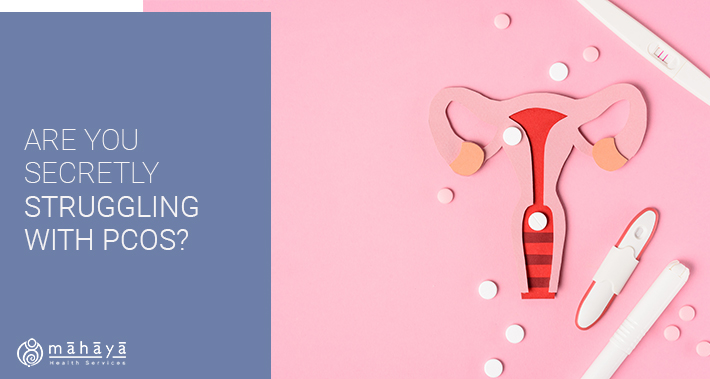
Does any of this sound familiar to you?
-
you’re over 20 years old, and still experiencing regular breakouts
-
your periods either don’t exist, show up sporadically, or are very heavy and painful
-
you’ve noticed hair growth on your body in strange, less than ideal places
-
you’re experiencing unexplained weight gain
-
you’ve noticed the hair on your head seems to be thinning with no explanation
-
you’re having a hard time conceiving
If ANY of these symptoms sound familiar, you might be struggling with PCOS – polycystic ovary syndrome. PCOS is the most common gynecological hormone disorder, conservatively affecting 1 in 10 menstruators. PCOS means a lot of things, but as a basic starting point it means that your ovaries may not be functioning properly.
Medically, PCOS is defined as the presence of two or more of the following:
-
Lack of ovulation – this is often experienced as irregular or absent periods
-
High androgens (male hormones) – think acne, increased body hair growth, and thinning hair on your head
-
The presence of multiple cysts on your ovaries, detected through pelvic ultrasound
If you’ve been struggling with any of the above symptoms, it’s worth getting checked out! Not only will a diagnosis provide a much needed explanation for the way you’ve been feeling, but it also gives you the opportunity to experience some relief. How nice would it be to be able to not stress about your skin, have regular, healthy periods, and feel better all over?
Differences with PCOS
Interestingly, no two cases of PCOS look the same! Everyone with PCOS will have a very different set of symptoms and as a result it’s easy to misdiagnose. Sadly, it takes most people several years to receive a proper diagnosis of PCOS, which can delay getting the treatment they need.
It’s important to note that you don’t have to have ALL of the symptoms of PCOS to be diagnosed with it. Many people with PCOS experience no change in weight, have clear skin, and have regular periods. But even the presence of one of the symptoms listed above warrants further investigation.
PCOS Risks
If you’ve got PCOS (or think you might have it) it’s important to be properly diagnosed and treated, as those with PCOS often experience:
-
struggles with fertility
-
increased risk of endometrial cancer
-
an increased risk of diabetes
-
an increased risk of cardiovascular disease
-
non-alcoholic fatty liver disease
-
an increased risk of depression
How to Manage PCOS
There are so many amazing and effective treatments that can help manage PCOS. Since every case of PCOS is unique, it’s important to see a Naturopathic Doctor who can customize treatment plans for you. Although PCOS can be confusing, a nuisance, and at times scary, it’s nothing that can’t be managed with proper care!
As a starter, here are my top 3 essentials for PCOS care:
-
Daily vitamin D
-
Choosing whole foods wherever possible
-
75 minutes of exercise per week or more
If you think you’re struggling with PCOS, or are ready to start a treatment plan, feel free to sign up for a FREE 15 minute consultation. You don’t have to struggle in silence anymore. We can get to the bottom of what’s going on, and design a treatment plan that works for YOU!
